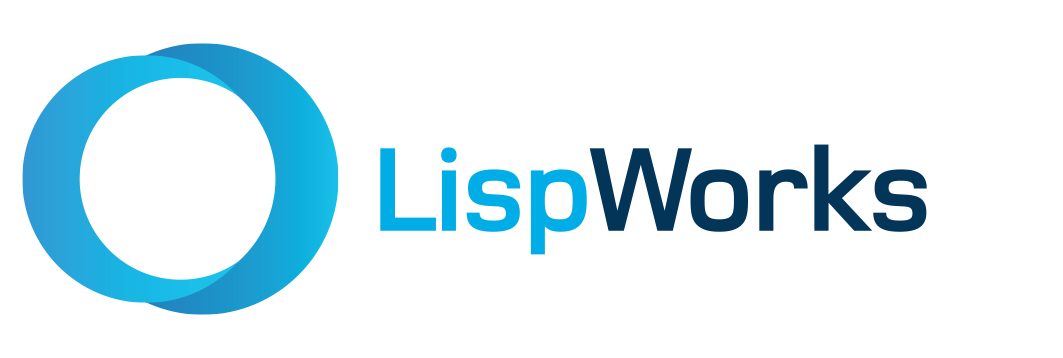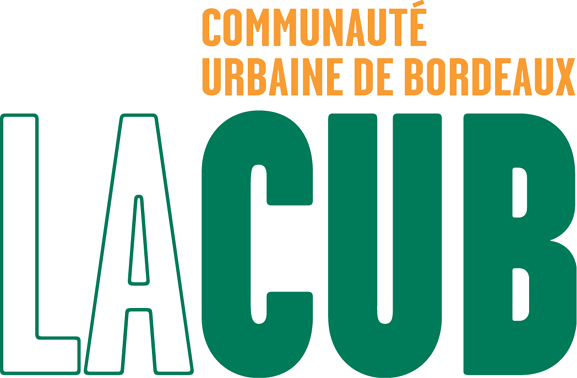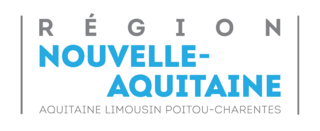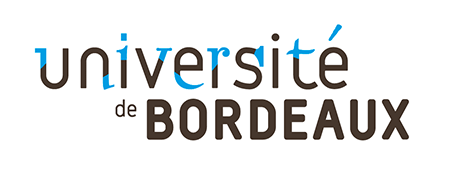Highlights
The Right Mix: Common Lisp in Bioinformatics, Systems Biology and in the Larger Semantic Network World
-
 Marco Antoniotti Marco Antoniotti Universita Milano Bicocca (COMMITTEE SPEAKER) Italy
Marco Antoniotti Marco Antoniotti Universita Milano Bicocca (COMMITTEE SPEAKER) Italy
Working with CL nowadays is a choice based on a long programming experience (and/or lazyness and or/inertia). Many times this choice is hard because of a number of entrenched limitations of the CL (or simply Lispy) world: lack of many agreed upon, modern and portable extensions, and lack of new programmers being the most visible. Yet, this talk will argue that the situation has improved and that CL is even more "the right mix" for many researchers in the sciences, and, in particular, in the fields I have been working for a few years. For CL, being the right mix comes from the strenghts of the standard and of the nature itself of the language. The ability to build code with more than decent numerical performance and the ability to morph in any (declarative) DSL are the key characteristics that make CL the right tool for many of the sciences. Bioinformatics and Systems Biology are two relatively broad terms that serve to describe a number of system and algorithmic solutions to problems stemming from the needs of biologists and clinicians. Very roughly speaking, these terms cover the range from "sequence analysis" (DNA, RNA, and protein) to statistical interpretation of "high throughput experiments" (micro-array and new ion-trap protein studies), to model simulation and testing of metabolic, regulatory and signaling pathways. The numerical capabilities of CL do fit well with these problems. On the other end, these problems require the support of many data manipulation, sharing and, above all, description systems that nowadays are continuously crystallized in different "ontologies" and "controlled vocabularies" which are then rendered in XML/RDF. CL systems for solving such "representation" task predate all of these efforts and it should come to no surprise that Lisp-based systems provide a very good platform to build more expressive DSL's capable of improving the inference capabilities of the tools needed by biologists and physicians. At this point in time, the "basic library" situation for CL is good enough to support its use in the field. CLSQL and XML parsing libraries are the basis for such use. Numerical libraries abound, as well as web development frameworks. Writing inference engines and DSL's has never been a problem for CL programmers and researchers. It is therefore a well founded conclusion that CL is a "well mixed solution" for Bioinformatics and Systems Biology, life, universe and everything else. It just needs to be put together. Marco Antoniotti is an Associate Professor at the Dipartimento di Informatica Sistemistica e Comunicazione, Università degli Studi di Milano-Bicocca, Italy. His interests concentrate in the field of Computational and Systems Biology. He is the author or co-author of several papers and software systems - SHIFT from UC Berkeley, Jester from PARADES, Simpathica and GOALIE from NYU - and co-authored three patents in the field of Genomics Optical Mapping. He received his PhD from New York University in 1995.
-
Location
 LaBRI Université Bordeaux https://www.labri.fr/ (CONFERENCE) 351 Cours de la Libération 33400 Talence France
LaBRI Université Bordeaux https://www.labri.fr/ (CONFERENCE) 351 Cours de la Libération 33400 Talence France Hotels
- Bayonne Etche Ona +33 5 56 48 00 88 (HOTEL) 15 Cours de de l'Intendance 33000 Bordeaux
- Grand Hôtel Français +33 5 56 48 10 35 (HOTEL) 12 Rue du Temple 33000 Bordeaux
- Hôtel de la Boétie +33 5 56 81 76 68 (HOTEL) 4 Rue de La Boétie 33000 Bordeaux
- Hôtel de l'Opera +33 5 56 81 41 27 (HOTEL) 35 Rue Esprit des Lois 33000 Bordeaux
- Hôtel de la Presse +33 5 56 48 53 88 (HOTEL) 6 Rue Porte Dijeaux 33000 Bordeaux
- Hôtel de Seze +33 5 56 81 72 42 (HOTEL) 23 Allée Tourny 33000 Bordeaux
- Hôtel de la Tour Intendance +33 5 56 44 56 56 (HOTEL) 16 rue de la vieille Tour 33000 Bordeaux
- Hôtel Gambetta +33 5 56 51 21 83 (HOTEL) 66 Rue Porte Dijeaux 33000 Bordeaux
- Hôtel Victoria Garden +33 5 56 33 48 48 (HOTEL) 127 Cours de la Somme 33800 Bordeaux
- Teneo Suites +33 5 57 35 76 00 (HOTEL) 8 Allée du 7ème Art 33400 Talence
Organization
Programme Chair
-
 Pascal Costanza Pascal Costanza Vrije Universiteit Brussel (PROGRAMME-CHAIR) Belgium
Pascal Costanza Pascal Costanza Vrije Universiteit Brussel (PROGRAMME-CHAIR) Belgium
Organizing Chair
-
 Didier Verna Didier Verna https://www.didierverna.info EPITA / LRE (ORGANIZING-CHAIR COMMITTEE SPEAKER) France
Didier Verna Didier Verna https://www.didierverna.info EPITA / LRE (ORGANIZING-CHAIR COMMITTEE SPEAKER) France
Committee
-
 António Leitão António Leitão Technical University of Lisbon (COMMITTEE SPEAKER) Portugal
António Leitão António Leitão Technical University of Lisbon (COMMITTEE SPEAKER) Portugal -
 Christophe Rhodes Christophe Rhodes Goldsmiths University of London (COMMITTEE SPEAKER) United Kingdom
Christophe Rhodes Christophe Rhodes Goldsmiths University of London (COMMITTEE SPEAKER) United Kingdom -
 Didier Verna Didier Verna https://www.didierverna.info EPITA / LRE (ORGANIZING-CHAIR COMMITTEE SPEAKER) France
Didier Verna Didier Verna https://www.didierverna.info EPITA / LRE (ORGANIZING-CHAIR COMMITTEE SPEAKER) France -
 Durand Irène Durand Anne Irène Université Bordeaux (COMMITTEE) France
Durand Irène Durand Anne Irène Université Bordeaux (COMMITTEE) France -
 Erick Gallesio Erick Gallesio Université de Nice / Sophia Antipolis (COMMITTEE) France
Erick Gallesio Erick Gallesio Université de Nice / Sophia Antipolis (COMMITTEE) France -
 Henry Lieberman Henry Lieberman MIT (COMMITTEE) USA
Henry Lieberman Henry Lieberman MIT (COMMITTEE) USA -
 Jeffrey Siskind Jeffrey Mark Siskind Purdue University (COMMITTEE) USA
Jeffrey Siskind Jeffrey Mark Siskind Purdue University (COMMITTEE) USA -
 Jerry Boetje Jerry Boetje College of Charlston (COMMITTEE) USA
Jerry Boetje Jerry Boetje College of Charlston (COMMITTEE) USA -
 Kent Pitman Kent Pitman PTC (COMMITTEE) USA
Kent Pitman Kent Pitman PTC (COMMITTEE) USA -
 Marc Feeley Marc Feeley Université de Montréal (COMMITTEE) Canada
Marc Feeley Marc Feeley Université de Montréal (COMMITTEE) Canada -
 Marco Antoniotti Marco Antoniotti Universita Milano Bicocca (COMMITTEE SPEAKER) Italy
Marco Antoniotti Marco Antoniotti Universita Milano Bicocca (COMMITTEE SPEAKER) Italy -
 Marie Beurton-Aimar Marie Beurton-Aimar Université Bordeaux (COMMITTEE) France
Marie Beurton-Aimar Marie Beurton-Aimar Université Bordeaux (COMMITTEE) France -
 Nicolas Neuss Nicolas Neuss Universität Karlsruhe (COMMITTEE) Germany
Nicolas Neuss Nicolas Neuss Universität Karlsruhe (COMMITTEE) Germany -
 Rainer Joswig Rainer Joswig Independent Consultant (COMMITTEE) Germany
Rainer Joswig Rainer Joswig Independent Consultant (COMMITTEE) Germany -
 Ralf Möller Ralf Möller Hamburg University of Technology (COMMITTEE) Germany
Ralf Möller Ralf Möller Hamburg University of Technology (COMMITTEE) Germany -
 Scott McKay Scott McKay ITA Software (COMMITTEE) USA
Scott McKay Scott McKay ITA Software (COMMITTEE) USA -
 Theo D'Hondt Theo D'Hondt Vrije Universiteit Brussel (COMMITTEE) Belgium
Theo D'Hondt Theo D'Hondt Vrije Universiteit Brussel (COMMITTEE) Belgium
Programme
Times are local to the conference. You can download the programme in iCalendar format here.May 22nd
Registration
Welcome Message
Writers' Workshop I
Writers' Workshop II
Coffee
Writers' Workshop III
Writers' Workshop IV
Lunch
Writers' Workshop V
Writers' Workshop VI
Writers' Workshop VII
Coffee
Reception at City Hall
May 23rd
Registration
Welcome Message
The Right Mix: Common Lisp in Bioinformatics, Systems Biology and in the Larger Semantic Network World
- Marco Antoniotti
Coffee
Context-Oriented Programming with the Ambient Object System
- Sebastián González
- Kim Mens
- Alfredo Cádiz
Reasoning about qualitative temporal information with S-words and S-languages
- Irène Durand
- Sylviane Schwer
Lunch
Binary Methods Programming: the Clos Perspective
- Didier Verna
Custom Specializers in Object-Oriented Lisp
- Jim Newton
- Christophe Rhodes
UCL-GLORP - An ORM for Common Lisp
- António Leitão
Coffee
An Implementation of CLIM Presentation Types
- Timothy Moore
Visual Programming in PWGL
- Mikael Laurson
- Mika Kuuskankare
Conference End
Conference Dinner





